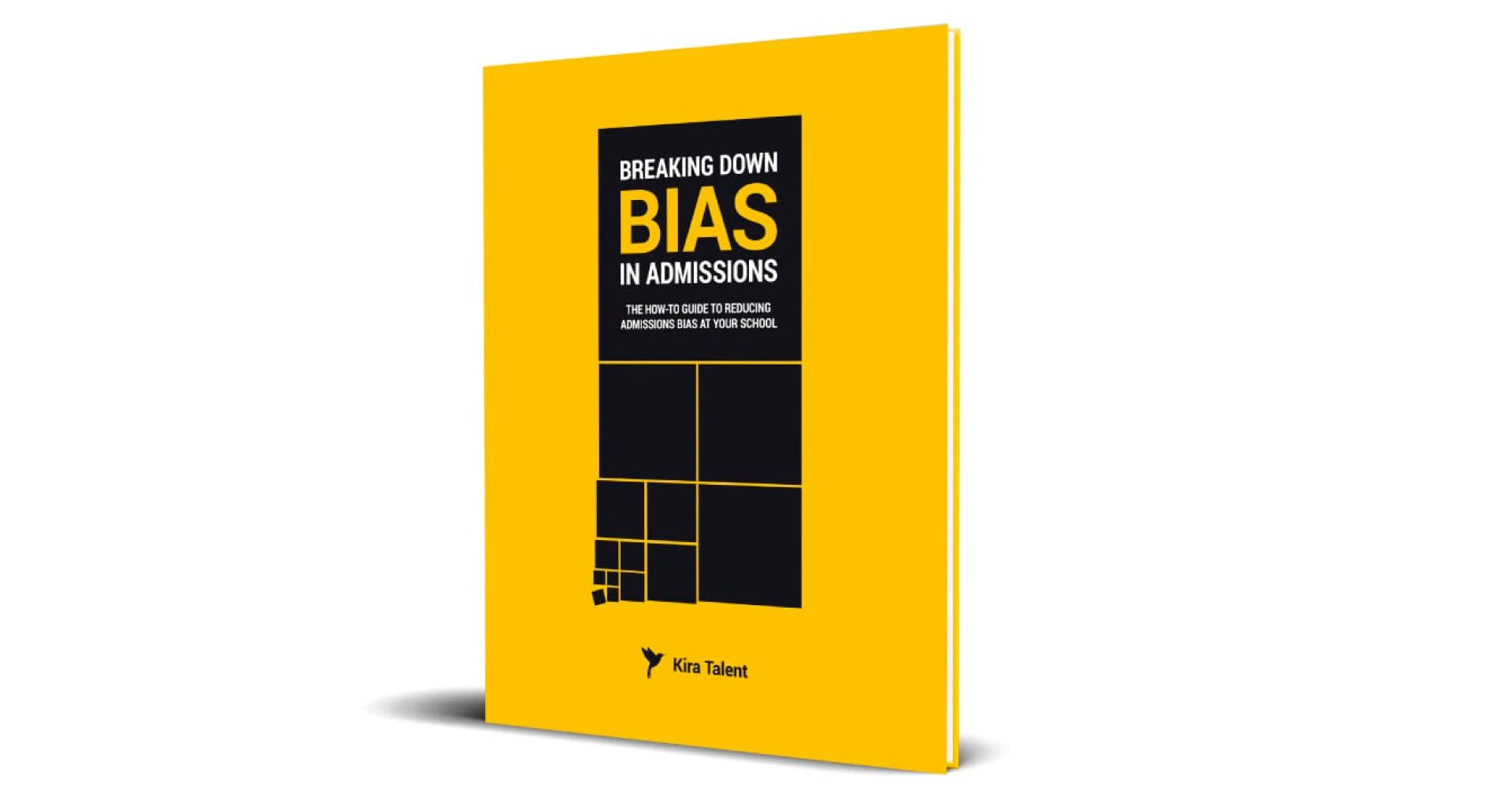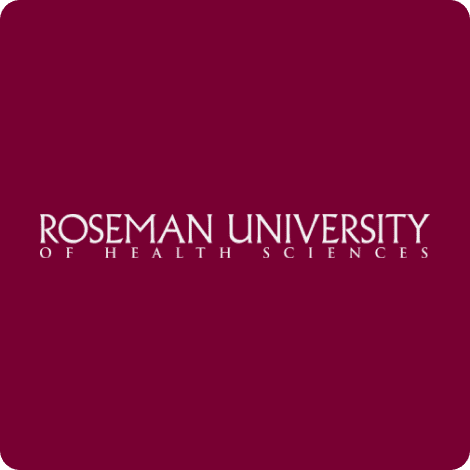For the University of Detroit Mercy School of Dentistry, the advantages of virtual interviewing are not a new discovery. Long before the pandemic made remote interviews a necessity, Detroit Mercy Dental was using them to help make more informed admissions decisions.
A private institution in the Jesuit and Mercy tradition, Detroit Mercy Dental not only provides students with a top-notch education and ample clinic experience but cultivates in its students a life-long commitment to serving the community.
In the past, the school relied on cognitive variables to assess and admit students. After reviewing GPA and Dental Admissions Test (DAT) scores, successful applicants were invited to an in-person interview. But as these cohorts progressed through the program and landed on the clinic floor in their third and fourth years, Detroit Mercy Dental noticed that while students were academically very strong, several were missing the mark with their interpersonal skills.
Discover how to redesign your admissions process to address the era of grade inflation
“We knew we needed more data points beyond just the cognitive variables in order to make better admissions decisions,” shared Dr. Steven Chang, the Director of Admissions at Detroit Mercy Dental.
“Since 2016, Kira Talent has been helping us identify applicants who will succeed in both the classroom and the clinic.”
Trusting the experts
When Detroit Mercy Dental first decided to incorporate holistic review into their process five years ago, the admissions team briefly considered developing a tool in-house. But taking on the work – from design and building to maintenance, upgrades and user assistance – wasn’t feasible.
Instead, Detroit Mercy Dental turned to Kira Talent, where they were able to build a custom process that was backed by a full-service team with years of experience in the virtual admissions space.
“What we’ve learned over time is that you always want to go with the experts,” shared Dr. Chang. “Partnering with a company where this is their focus; this is their area of expertise, ensures you’re staying innovative.”
In the five years Detroit Mercy Dental has used Kira, the platform’s continually evolving features have added new depth to the school’s admissions process.
Discover how Kira’s newest features can enhance your admissions process
Through timed written and timed video responses, reviewers get an authentic picture of who applicants are off the page. And with the structured reviewing and on-demand availability of Kira’s Asynchronous Assessments, Detroit Mercy Dental has been able to streamline their process and reduce reviewer fatigue.
“It’s an easy and seamless process for our faculty and administration, as well as our applicants.”
“We really enjoy that we can assign the video responses to our reviewers and they can evaluate them at their leisure,” explained Dr. Chang. “All they have to do is click the rubric answers to generate applicant scores, and that has been so helpful in making things as straightforward as possible for our reviewers.”
Discover how Purdue University eliminated reviewer fatigue in the admissions process
A twofold approach for optimal success
Receiving over 2000 applications per cycle, the Detroit Mercy Dental admissions team invites every applicant who meets their minimum cognitive thresholds to complete a Kira assessment. From there, the team invites between 33% and 40% of applicants to attend an in-person interview*.
“It’s a twofold approach,” explains Dr. Chang. “An applicant's Kira results are an important part of assessing the whole candidate before the actual interview.”
The value of a Kira assessment for Detroit Mercy Dental is in the structured review, consistency of process for applicants and reviewers, and bias-mitigating features like the inter-rater reliability metrics. With these safeguards in place, reviewers are able to interact more freely with their applicants when it comes time for their live interviews.
“As much as we may try to maintain consistency across applicants during live interviews, it’s virtually impossible,” shared Dr. Chang. “By having Kira already provide a structured, consistent and unbiased assessment of the applicants, our live interviews are able to be more open-ended.”
Once applicants are invited to a Kira assessment and interview, they’re assigned to reviewers who follow them throughout the process. Once assigned, reviewers receive the applicants’ written applications with the cognitive scores masked.
“By keeping the GPA and DAT scores hidden until after the live interview, we reduce the potential for Halo bias,” explained Dr. Chang. “We want to create a level playing field and ensure that we’re really measuring something different through these interviews.”
Learn more about Halo bias and the nine other types of admissions bias
By assessing their written application, followed by their Kira assessment and their live interview, the reviewers can establish a comprehensive view of the applicant. When it comes time to make a final decision, there are multidimensional data points on which the applicant is assessed.
A selling point rather than an obstacle
When Detroit Mercy Dental first implemented Kira, there was some concern that applicants would be deterred by an added step in the process. However, over the school’s five years with Kira, they have not only seen an increase in applications but see less than 1% of applicants fail to complete their Kira assessment.
“It’s certainly not a deterrent,” Dr. Chang shared.
“Applicants jump at the chance to express who they are as a candidate.”
“And that’s true now more than ever,” he continued. “Over the past year of this pandemic, students have become accustomed to speaking into a camera. Any barrier that it may have presented before, in terms of discomfort or nervousness, doesn’t exist now.”
Discover how Des Moines University is reaching a new generation of applicants
Finding the diamonds in the rough
Pulling competencies from the AAMC Anatomy of an Applicant, Detroit Mercy Dental worked with the Client Success team at Kira to develop a pool of questions that focused on measuring applicants’ non-cognitive skills.
“We encourage reviewers to think about whether this is a student they would be excited to see in the classroom. Is this a student they’d be excited to see on the clinic floor?” shared Dr. Chang.
“With Kira, we’ve found that there are so many candidates who didn’t have the greatest cognitive score on their application, but when we look at their Kira scores and their interview scores, they’re exceeding expectations.”
“These are the candidates who the faculty are excited to teach," Dr. Chang continued. "They’re excited to mould them and help them become great dentists because they can see that they have great potential.”
“We don’t want to miss good candidates that may not show up as well on paper,” shared Dr. Chang. “A big part of succeeding in dentistry is patient interactions. Do they have empathy? Do they understand what it’s like to interact with people who are different than they are? These are things you can’t assess through grades and standardized tests.”
Download Kira’s comprehensive guide to holistic review
“Not all students have to have a 4.0 GPA. Not everyone can and that’s okay,” shared Dr. Chang. “As long as they meet the threshold that tells us they can successfully navigate the curriculum, what we really care about is their passion and their soft skills. These are far better indicators of how successful they will be as a healthcare provider, and ultimately, our goal is to graduate the best dentists.”
*a previous version of this post erroneously reported 85% are interviewed.






